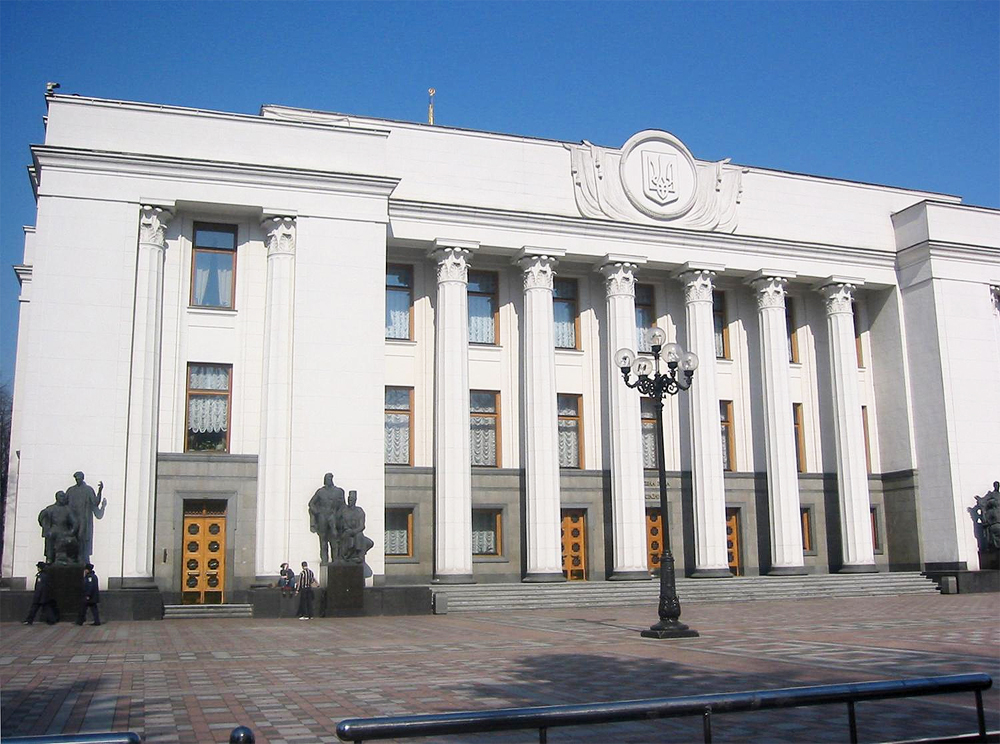Poroshenko and Yatsenyuk parties dispute victory in tight elections

(Business New Europe – bne.eu – October 30, 2014) The People’s Front party, founded and led by Ukraine’s prime minister Arseny Yatsenyuk, and President Petro Poroshenko’s eponymous Petro Poroshenko Bloc are disputing which of them won Ukraine’s landmark parliamentary elections held on October 26. At stake is the right to draw up a crucial programme of sweeping reforms on which to base a coalition agreement – and to appoint the prime minister and government to implement it.
“We took first place in these elections,” Yatsenyuk told a televised press conference on October 29. Ukraine’s Central Election Committee, with 98% of votes counted, gave Yatsenyuk’s People’s Front – which was founded only in mid-September – 22.17% of the vote against Poroshenko’s 21.82% – a difference of a mere 50,000 votes.
But Ukraine’s election system is a fifty-fifty mixture of proportional representation and majority constituencies – meaning that the total vote count does not directly determine the number of seats won by a party. Petro Poroshenko’s party will take significantly more seats in parliament than Yatsenyuk’s, thanks to a significantly stronger showing across the country in the majority constituencies. Currently Poroshenko has won 69 first-past-the-post constituencies, and People’s Front only 18, according to the Central Electoral Committee. This would give Poroshenko Bloc a total of 132 seats in parliament, clearly ahead of Yatsenyuk’s total of 82. Another 96 MPs will enter parliament as independents, who are likely to gravitate to one of the major parties.
“I am pleased that my political force has won a convincing victory with over 130 MPs in parliament,” Poroshenko said at a meeting of the judicial reform council, as quoted by Zerkalo Nedeli.
“We are leading with an absolute majority of Ukrainians’ support,” deputy prime minister Volodymyr Hroisman, one of the leaders of Petro Poroshenko Bloc and potentially Poroshenko’s candidate for prime minister, also told a televised press conference.
But Yatsenyuk was sounding uncompromising about his newly founded party’s claim to victory, saying that his continuing in the job of prime minister was conditional on his party initiating the drawing up of the coalition agreement. “Conforming with European practice, the first placed party initiates the formation of a coalition,” he told the press conference, saying that it was also his right to nominate cabinet ministers. “If the coalition isn’t formed along these principles, then another party will take on the task of forming a coalition, and there will be another prime minister,” he warned.
Yatsenyuk has won international kudos for his technocratic management skills in talks with international donors, and is believed to be the West’s preferred candidate for prime minister. He is likely to leverage this fact now in demanding a leading role in drawing up a reform plan, say pundits.
Both Poroshenko and Yatsenyuk’s parties have posted draft coalition agreements on their websites that outline sweeping reforms.
But in an indication of how unexpected Yatsenyuk’s lead in the vote count has come even to the People’s Front party itself, Yatsenyuk’s plan runs to only two and half pages, with another two pages detailing 36 laws to be passed by Ukraine’s parliament by the end of this year.
The coalition agreement proposed by Poroshenko in contrast runs to 48 pages, with detailed proposals ranging from court reform, combatting corruption, to rebuilding Ukraine’s devastated military in order to restore the country’s territorial integrity. Poroshenko’s program also foresees the abolition of subsidised gas prices for households by May 2015, a crucial demand of international donors.
Despite the difference in length, the two competing coalition agreement drafts appear to be broadly compatible with each other, making it less likely that the jockeying over poll position between Poroshenko will develop into a standoff, something that the EU and USA will also try to avoid, say experts.
